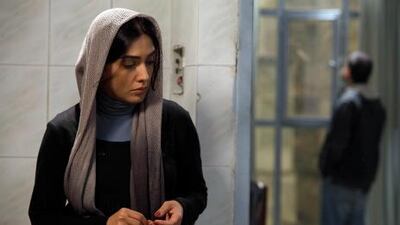Amr Waked, the star of Syriana, and the prominent Egyptian filmmaker Mohamed Khan have put their names to a petition attacking the way that the Cannes film festival has decided to celebrate Egyptian cinema this year.
When it was announced that the festival would have a new initiative celebrating the cinema of a different country each year, it chose Egypt for the inaugural event. It was said that this was also to celebrate the role that Egypt played in the Arab Spring and to show solidarity with the movement that led to the toppling of President Mubarak on February 11.
The celebration of Egypt will take place on Wednesday and as part of the tribute, a film comprised of 10 short films will be screened. Titled 18 Days, each of the stories revolves around the uprising that began on January 25. The 10 short films have been made by Yousry Nasrallah, Marwan Hamed, Sherif Arafa, Sherif El Bendary, Kamla Abou Zikry, Mariam Abou Ouf, Mohamed Aly, Ahmed Alaa, Ahmed Abdallah and Khaled Marei.
The decision to include Arafa and Hamed has angered many. It's claimed by the signatories of the petition that they were actively involved in supporting the regime of Mubarak, making adverts for the former Egyptian leader's 2005 election campaign and for the National Democratic Party.
Another bugbear is the fact that some actors in the films, such as the Egyptian star Youssra, phoned television shows during the uprising to criticise the protesters.
So far, 313 filmmakers have signed the petition which criticises the use of filmmakers who worked for the ousted regime.
The petition states: "Those who have signed this petition wish to express their happiness and pride for the choosing of Egypt as guest of honour at the 64th Cannes International Film Festival and the words used by the festival to describe the festival's appreciation for Egyptian cinema and our great revolution.
"However, at the same time we express our regret and our strong objection to what we have read in the programme about this celebration.
"A number of participants in the film 18 Days which is to be screened by the festival contains films made by filmmakers who promoted the former regime and made advertising campaigns outlining the dictator and entrench injustice and setting the way for the project of inheritance of power. This film also includes some actors who were enemies of the revolution and tried to abort it in various ways and degrees of insult on TV and saying that the revolutionaries were traitors, they incited the masses to kill the noble people in Tahrir square to stop the revolution. The Egyptian people, masses have condemned these artists and put them in the ranks of the enemies of the Egyptian people and its interests."
The news of the petition came on the day that the festival screened the world premiere of Mohamed Rasoulof's new film Goodbye, which had been smuggled out of Iran after the filmmaker had been banned from making films in his home country.
The director of The White Meadows was banned from making films for 20 years along with Jafar Panahi on December 20, last year. He is currently appealing against a six-year prison sentence on charges of "assembly, collusion and propagandising against the regime".
The Cannes general delegate Thierry Frémaux introduced the film by saying: "It is rare for Cannes to show a film with the director absent and unable to come to the festival." He also said there would be a press conference outlining the current predicament of Rasoulof after the screening of a new documentary made by Panahi, which debuts on Friday.
With nothing to lose, Rasoulof pulls no punches with Goodbye. The principal protagonist played by Leyla Zareh is a pregnant woman who wants to leave Iran. Her licence to practise law has been revoked, and her dissident journalist husband is in hiding from the authorities. The constant persecution by the authorities is highlighted in two scenes, when men come to remove a satellite dish and also when agents trap our protagonist in a lift.
It's rare to see an Iranian film so direct about the oppressiveness of the regime in dealing with any sign of dissent. The film shows the harsh reality of being an intellectual in Iran today.


